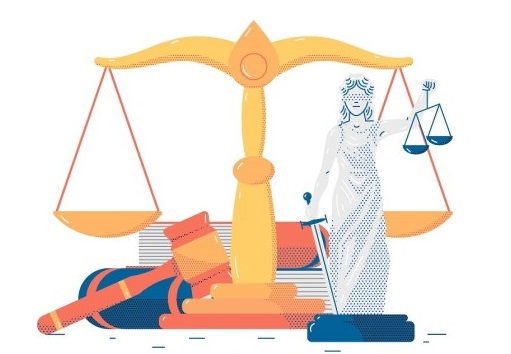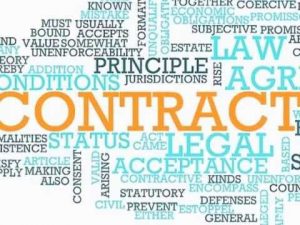Lesson THEME: legal english 101
Legal English is the type of English as used in legal writing. In general, a legal language is a formalized language based on logic rules which differs from the ordinary natural language in vocabulary, linguistics, syntax, and semantics, as well as other linguistic features, aimed to achieve consistency, validity, completeness and soundness, while keeping the benefits of a human-like language such as intuitive execution, complete meaning and open upgrade. However, Legal English has been referred to as a “sublanguage”, as legal English differs from ordinary English. A specialized use of certain terms and linguistic patterns governs the teaching of legal language. Thus, “we study legal language as a kind of second language, a specialized use of vocabulary, phrases, and syntax that helps us to communicate more easily with each other”.
The term legalese, on the other hand, is a term associated with a traditional style of legal writing that is part of this specialized discourse of lawyers: communication that “lay readers cannot readily comprehend”. This term describes poor legal writing that is cluttered, wordy, indirect, and that includes unnecessary technical words or phrases. Historically, legalese is language a lawyer might use in drafting a contract or a pleading but would not use in ordinary conversation. For this reason, the traditional style of legal writing has been labeled reader-unfriendly. Proponents of plain language argue that legal “writing style should not vary from task to task or audience to audience…; whatever lawyers write must be Clear, Correct, Concise, and Complete”. These 4 Cs describe “characteristics of good legal writing style” in the United States.
Activity 1:
Listening exercise
Listen to the following sound clip:
Activity 2:
PICTURE

Describe what you see, in as much detail as possible.
Activity 3:
ARTICLE
The scales of justice is a symbol used in many Western presentations of modern law. They symbolize the idea of the fair distribution of law, with no influence of bias, privilege or corruption.
The scales are held usually by Lady Justice, also known as the Lady of Justice, a very common figure in Western modern law. She is sometimes depicted with a blindfold, and most times in flowing robes holding a sword along with her scale.
There are many possible origins behind Lady Justice. Many goddesses and deities that represent justice have been depicted with a sword or a scale.
A Greek goddess named Themis, was said to have advised Zeus and carried a scale and sword whilst blindfolded. She would occasionally be depicted as veiled and blind, or described as ‘the blind goddess of fate’. Her blindness suggests her capriciousness (unpredictable change; erratic). I think most of us would agree that now, the blindfold symbolizes the belief that there should be equality before the law, that social rank and social connections should not be a factor. In theory, Lady Justice should be blind to class, race, religion, political preferences, and so on. It is also worth noting that we speak of judges and juries hearing testimony or of litigants having a fair hearing. The blindfold suggests an emphasis on listening.
European presentations of Lady Justice commonly show her blindfolded while other Western presentations do not.
The official name given to the hammer a judge uses in court is gavel. Gavel is that small wooden hammer that a judge or magistrate uses in a court room in order to get people’s attention or to emphasize on something that he has said. The wooden plate that a judge or magistrate pounds the gavel on is called the ‘Sounding Block’. This is the reason why both are called ‘Gavel and Block’. When it is sounded in a courtroom for example, everybody is suddenly obedient. People know the power it has and dare not ignore it. Ignoring it could easily land someone in prison for contempt of court.
Activity 4:
Debate
Statement: Alcohol, tobacco, and pharmaceutical drugs are legal, but they can hurt a lot of people. (Ziggy Marley)
Do you agree – why or why not?
Take a stand point and defend your opinion.
Activity 5:
QuOte:
“People are getting smarter nowadays; they are letting lawyers, instead of their conscience, be their guide.”
Will Rogers
Please explain what your understanding is of this quote.
Do you agree or disagree with it? Why or why not?
Activity 6:
role play:
Scenario 1: Explain to a client why they should use your company to draw up a contract, on their behalf.
.
Activity 7:
IDIOMS:
English idioms, proverbs, and expressions are an important part of everyday English. Because idioms don’t always make sense literally, you’ll need to familiarize yourself with the meaning and usage of each idiom.
Learning to use common idioms and expressions will make your English sound more native, so it’s a good idea to master some of them.
after the fact
We were told, after the fact, that the company would not give any money to the fire victims.
an act of God
The insurance company refused to pay the money because they said that the forest fire was an act of God.
assemble a case (against someone)
The lawyers were unable to assemble a case against the man.
assume liability
The business refused to assume liability for the dangerous products.
at arms length
We purchased the property at arm’s length and we are not involved in any management decisions.
Activity 8:
PHRASAL VERBS:
Phrasal verbs open up a whole new world of possibilities for speaking English. They are phrases that give verbs completely different meanings. They are also used often in everyday conversation, which makes them important to know.
Enter into
For example, the company entered into negotiations with its supplier to reach a mutually acceptable agreement.
Factor in
For example, “the company needs to factor its legal costs when preparing its end of year accounts.
Find in favour of/Against (Rule in favour of/against)
For example; the judge found against the Defendant or the judge found in favour of the Claimant
Weigh up
For example, the jury weighed up the evidence carefully before handing down their verdict.
Activity 9:
ASK QUESTIONS REGARDING THESE STATEMENTS:
The family of the accused criminal paid much money to bail him out.
The judge sent the man to jail because he believed, beyond a reasonable doubt, that the man had committed the crime.
The woman was forced to quit her job after it was discovered that she had broken the law.
Activity 10:
headlines:
Actress from law firm ad files $1 million for breach of contract lawsuit
Loser in Indonesian Presidential Election Challenges Result in Court
US State of Connecticut Introduces Bill to Authorize Smart Contract Use in Commerce
Activity 11:
Homework:
Draw up a simple contract between yourself and an independent contractor to paint your house.
This is a writing and speaking exercise.
